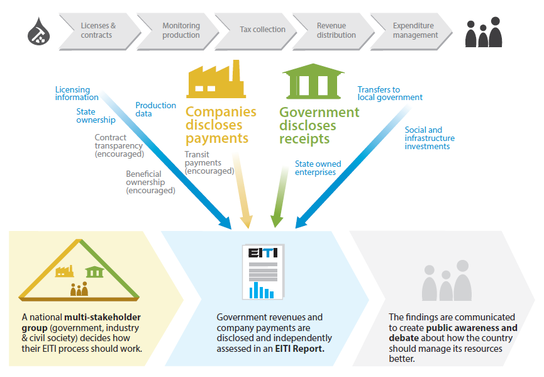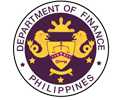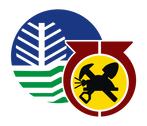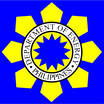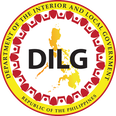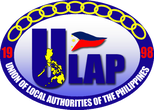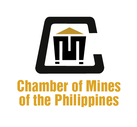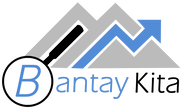The Philippine Extractive Industries Transparency Initiative, or PH-EITI, is a government-led, multi-stakeholder initiative implementing EITI, the global standard that promotes the open, accountable management, and good governance of oil, gas, and mineral resources. PH-EITI was created on 26 November 2013 through EO No. 147, s. of 2013. It is a government commitment first announced through EO No. 79, s. of 2012.
PH-EITI works to achieve five specific objectives:
1. Show direct and indirect contribution of extractives to the economy (through EITI process);
2. Improve public understanding of the management of natural resources and availability of data;
3. Strengthen national resource management / strengthen government systems;
4. Create opportunities for dialogue and constructive engagement in natural resource management in order to build trust and reduce conflict among stakeholders; and
5. Pursue and strengthen the extractive sector's contribution to sustainable development.
PH-EITI works to achieve five specific objectives:
1. Show direct and indirect contribution of extractives to the economy (through EITI process);
2. Improve public understanding of the management of natural resources and availability of data;
3. Strengthen national resource management / strengthen government systems;
4. Create opportunities for dialogue and constructive engagement in natural resource management in order to build trust and reduce conflict among stakeholders; and
5. Pursue and strengthen the extractive sector's contribution to sustainable development.
THE EITI PROCESS
|
The EITI process has three pillars: the creation of a national Multi-stakeholder Group; the publication of a report containing independently assessed data on government revenues and company payments due to extractive operations, and communication of the report's findings for public awareness and dialogue.
Required disclosures cover data along the entire value chain of an extractive activity--from granting of licences and contracts, to production, to tax collection, up to revenue utilization. Data are processed and reconciled by an Independent Administrator to surface any discrepancy or variance. Key findings are published in a report that is then disseminated to stakeholders and the general public. Mining contractors are required to participate in the EITI process by virtue of DENR Department Administrative Order No. 2017-07. Non-compliant contractors risk having their Environmental Compliance Certificate, and Mineral Ore Export Permit suspended. |
THE PEOPLE
PH-EITI is administered by the Multi-stakeholder Group or MSG chaired by the Department of Finance, and composed of representatives of government, industry, and civil society.
The government is represented by the Department of Finance, Department of Environment and Natural Resources-Mines and Geosciences Bureau, Department of Energy, Department of the Interior and Local Government, and the Union of Local Authorities of the Philippines.
The industry or business sector is represented by the Chamber of Mines of the Philippines, and the Petroleum Association of the Philippines.
Civil society is represented by Bantay Kita-Publish What You Pay Philippines.
The government is represented by the Department of Finance, Department of Environment and Natural Resources-Mines and Geosciences Bureau, Department of Energy, Department of the Interior and Local Government, and the Union of Local Authorities of the Philippines.
The industry or business sector is represented by the Chamber of Mines of the Philippines, and the Petroleum Association of the Philippines.
Civil society is represented by Bantay Kita-Publish What You Pay Philippines.
History
2012 |
The Philippine government, in 2012, made a public commitment to improve environmental mining standards and increase revenues from mining with the view of enabling sustainable development both at the national and local levels. This new responsible mining policy was articulated in Executive Order (EO) No. 79, series of 2012, that constituted the Mining Industry Coordinating Council or MICC. In the same EO, under Section 14, the government pledged to improve transparency, accountability, and governance in the extractive sector through the implementation of a global standard called the Extractive Industries Transparency Initiative or EITI.
At MICC's first meeting on 25 July 2012, Presidential Adviser on Climate Change Secretary Elisea "Bebet" G. Gozun was appointed to lead the operationalization of EITI in the Philippines. A technical working group (TWG) was then formed, and a work plan on EITI implementation was crafted. September of the same year, the first two multi-stakeholder group or MSG meetings were convened. |
2013 |
January of the following year, the first Philippine EITI National Conference was held with participants from government agencies, mining, oil and gas industries, and civil society. A few months later, the Philippines would formally submit its application for candidature to the EITI International Board. About a month after, at the 6th EITI Global Conference in Sydney, Australia in May 2013, the Philippines was admitted a candidate country to EITI.
The succeeding months saw the laying of groundwork for the would-be Philippine EITI or PH-EITI. The government in partnership with the World Bank hosted a conference on the adoption of the 2013 EITI Standards. The conference resulted in the stakeholders’ increased understanding of the reporting requirements, processes, and implications. More importantly, a set of provisional objectives that defined the direction of the First PH-EITI Country Report was produced. On 26 November 2013, PH-EITI was formally instituted through the signing of EO No. 147, s. of 2013. The EO provided for the creation of, among others, the MSG, a secretariat composed of administrative and technical personnel, and TWGs as necessary. Likewise, the EO determined that PH-EITI shall hold office under the auspices of the Department of Finance, and the MSG chaired by the Finance Secretary. |
2014 -Present |
Since then, PH-EITI has had a regular set of programs and annual stakeholder engagement activities such as the National Conference, and the nationwide Roadshow. The PH-EITI MSG, likewise, holds monthly meetings to deliberate issues and concerns related to extractives transparency, government revenue sharing, and others. PH-EITI also participates in capacity-building activities such as conferences on Beneficial Ownership, and workshop on EITI Validation to fulfil its core objectives as well as meet the requirements of the EITI Standard.
Among the organization's early achievements was the rollout in November 2015 of the Environment and Natural Resources Data Management Tool or ENRDMT, which PH-EITI developed together with the DOF-Bureau of Local Government Finance (BLGF), and the Philippine Poverty-Environment Initiative or PPEI. On 24 February 2016, PH-EITI was honoured as one of four recipients of the "EITI International Chair Award" at the opening ceremony of the 7th EITI Global Conference in Lima, Peru. The following year, PH-EITI went through a rigorous process of compliance validation. And in 5 October 2017, the Philippines was declared the first among over 50 implementing countries to have achieved a satisfactory progress in the implementation of the 2016 EITI Standard. To date, PH-EITI has published four country reports among other knowledge materials. MSG recommendations have also been translated to reforms that have made extractives data more accessible to the public. EITI has also become a continuing commitment under the Philippine Open Government Partnership (OGP) National Action Plan, and a part of the Participatory Governance Cluster or PGC Roadmap. In addition, EITI institutionalization is included in the legislative agenda for the fiscal sector under the Philippine Development Plan 2017-2022. Bills proposing the institutionalization of PH-EITI are also currently pending in Congress. |
